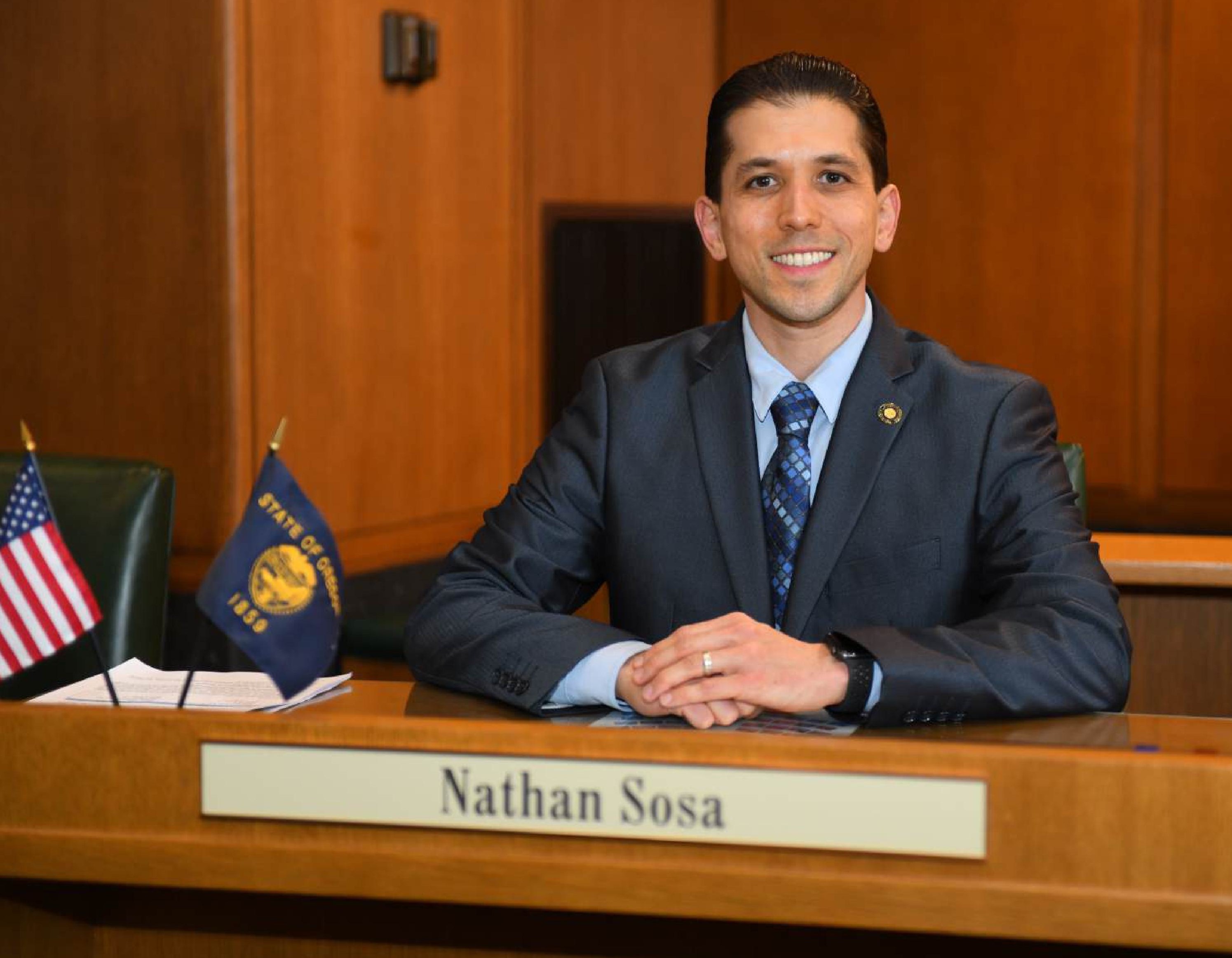Opinion: Does Sen. Merkley running again mean just another preordained race at the top of the ballot?
Published 6:23 am Thursday, July 17, 2025

- U.S. Sen. Jeff Merkley, D-Oregon, appears at a town hall at Parrish Middle School in Salem on Sunday, Feb. 2, 2025. (Alan Cohen/Oregon Capital Chronicle)
Next year, the top of Oregon’s general election ballot will be anchored by the contest for U.S. Senate. If history holds, it may not be much of a contest.

Randy Stapilus has researched and written about Northwest politics and issues since 1976 for a long list of newspapers and other publications. A former newspaper reporter and editor, and more recently an author and book publisher, he lives in Carlton.
That doesn’t mean it isn’t important. Oregon is moving into (and it’s partly there now) the high-rank status for senior members of Congress, meaning they have enough seniority that if they angle their assignments right, they can be among the top committee chairs in the chamber, leading power players. A generation-plus ago, Oregon Republicans Mark Hatfield and Robert Packwood were in that position. Today, Democrats Ron Wyden (top Democrat on Senate Finance) and Jeff Merkley (top Democrat on Budget) have worked their way there.
On July 10, Merkley said he will run for a fourth term next year. He also said that until some months ago his decision was in some doubt, but he already had since late 2020 a formal filing with the Federal Election Commission setting up for a technical candidacy. Most Oregonians who follow politics probably would have been more surprised had he chosen to retire.
Trending
You could make an argument, of sorts, that Merkley may be vulnerable.
It’s an anti-incumbent time. Congress is not popular, and Merkley has been there since 2009. He’s never won a Senate election by a huge margin. He’s identified with one wing of the Democratic party (a rare congressional Bernie Sanders presidential backer in 2016). And after all, a year and half is a long time and many things affecting the election can and may happen by then.
One Republican, Timothy Skelton from Sandy, has filed an FEC form indicating he will run for the Senate next year. His website declared that “as Scoutmaster for Troop 668, former volunteer police officer with Sandy PD, and security worker, I’m running for U.S. Senate to show working-class folks — not just millionaires — can lead with impact.” He appears not to have raised or spent any campaigning funds yet, however, and he may not be alone in the Republican primary.
Practical reality and recent history argue, though, that Merkley is in strong shape. A reasonable guess: Merkley wins re-election next year with around 56% to 59% of the vote.
Democrats running for statewide office in Oregon seem to have a modest ceiling and sturdy floor, not high enough for real comfort but normally enough to give them a presumption of winning, barring unusual conditions.
As a candidate for the Senate, Merkley has had just one close contest in a primary and one in the general, both in his first run for the office in 2008. The general election battle was against the Republican incumbent, Gordon Smith. Merkley beat Smith by just 3.4% of the vote, but on the ballot when Democrat Barack Obama was leading in the state’s presidential contest, by 16.3%.
Trending
This might have suggested some future problems for Merkley. In November 2013 the National Journal called him “vulnerable” because of Oregon’s trouble-plagued Affordable Care Act rollout; he was also becoming closely aligned with the more progressive side of the Democratic Party.
None of that hurt him. In 2014, nationally a very strong Republican year, he won with 55.7% against Republican Monica Wehby, a physician who developed a public profile running in large part on health issues (though after a campaign political analyst Jim Moore called “one disaster after another”). By 2020 the party’s efforts had weakened with the nomination of Q-Anon advocate Jo Rae Perkins; against her lightly-funded campaign Merkley won with 56.9%.
The nearly identical size of Merkley’s wins mirrors nearly all recent elections for Oregon senators. His seatmate, Wyden, pulled 57% of the vote both in 2010 and in 2016, and — against recent Merkley opponent Perkins — 56% in 2022.
In 2026, Merkley seems likely to be running with the national political tide, not against it. So far, there’s not much reason to think he won’t match his earlier vote marks, and he could slightly exceed them.
His campaign already has pulled in a healthy $3.7 million, probably vastly more than any opponent will raise.
In a mid-term election year that in Oregon overall, looks to be less exciting than the last few, election watchers may need to look beyond the top of the ballot to find some serious competition.
Randy Stapilus has researched and written about Northwest politics and issues since 1976 for a long list of newspapers and other publications. A former newspaper reporter and editor, and more recently an author and book publisher, he lives in Carlton.







